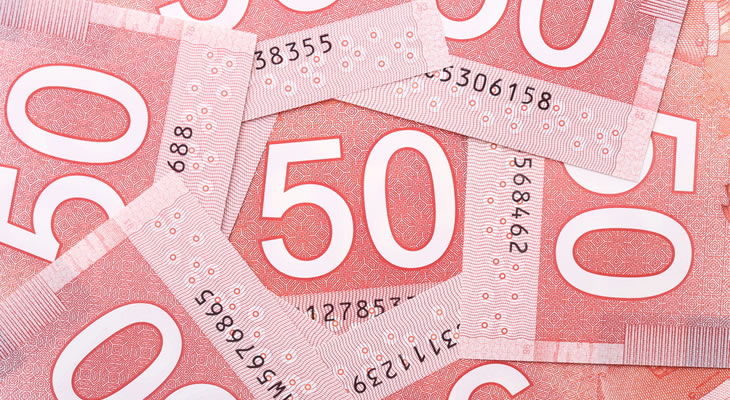GBP/CAD Exchange Rate Rangebound, UK Joblessness Slides
The Pound Canadian Dollar (GBP/CAD) exchange rate held steady today following the release of the UK’s unemployment rate report for between April and June, which dipped from 4.8% to 4.7%. The pairing is currently fluctuating around CA$1.73.
As a result, Sterling investors have become more confident about the outlook for the nation’s labour market, which is showing signs of recovery.
Chancellor Rishi Sunak also acknowledged ‘bumps in the road’ but added that the data is ‘promising’. Sunak added:
‘There are now more employees on payrolls than at any point since March 2020 and the number of people on furlough is the lowest since the scheme launched.’
Martin Beck, the senior economic advisor to the EY Item Club, was also optimistic, saying:
‘The speed at which the jobs market is recovering continues to surprise to the upside.
‘Looking ahead, the jobless rate could feasibly creep up in the short-term: an easing of restrictions has made searching for a job easier, and this could result in people moving from inactivity to seeking a job and therefore being picked up in the numbers again.’
However, with daily UK Covid-19 infections edging higher, Pound investors have also remained cautious about economic data.
If infections and hospitalisations increase in autumn, as widely predicted, then the nation’s economic recovery could slowdown.
Canadian Dollar Exchange Rate Struggles as Oil Prices Remain Low
The Canadian Dollar (CAD) continued to struggle today as oil prices trend lower as global political and economic uncertainty lowers demand for the commodity.
As a result, the commodity-linked ‘Loonie’ has suffered from tumbling oil prices, with oil being one of Canada’s biggest exports.
Analysts at Reuters explain:
‘Canada’s main stock index futures inched lower on Tuesday as oil prices extended declines on global demand concerns with several Asian economies grappling with a spike in COVID-19 cases.’
In Canadian economic data, today saw the release of July’s housing starts data, which rose from 270,000 to 272,000.
Bob Dugan, CMHC’s chief economist, was more cautious, however, noting the decline from June’s 293,085. Dugan said:
‘The six-month trend in housing starts declined from June to July, reflecting the recent moderation in total starts from the highs recorded earlier this year.
‘In July, higher single-detached SAAR starts failed to offset a decrease in multi-family SAAR starts in Canada’s urban areas, leading to a decline in overall SAAR starts for the month. However, the level of activity remains elevated by historical standards, both on a trend and monthly SAAR basis. Among the markets of Vancouver, Toronto and Montreal, only Toronto registered growth in total SAAR starts in July, driven once again by strong growth in the multi-family segment.’
GBP/CAD Exchange Rate Forecast: UK and Canadian Inflation Data in Spotlight
Canadian Dollar (CAD) investors will be looking ahead to Wednesday’s release of the latest Canadian inflation data for July.
If the outlook for Canada’s domestic economy improves, however, then we would see the CAD/GBP exchange rate begin to edge higher.
However, if oil prices remain low this week, the ‘Loonie’ will likely struggle.
Pound (GBP) traders will eye the UK’s inflation reports for July tomorrow. Any indications of a growing British economy would boost the GBP/CAD pairing.


Comments are closed.